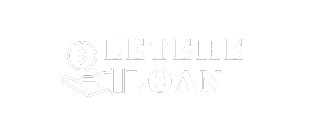Buying a car is a major decision that requires careful consideration, especially when it comes to financing. Whether you’re purchasing a new car, a used car, or leasing a vehicle, understanding the different financing options available can save you a significant amount of money and stress in the long run. The best car financing option depends on various factors including your credit score, down payment, loan terms, and whether you’re planning to buy or lease. In this article, we’ll explore the various financing options, their pros and cons, and the best approach to secure the most favorable terms.
Key Takeaway
Choosing the right car financing option involves understanding your financial situation and the pros and cons of each available option. Consider your credit score, down payment, loan terms, and whether you want to own or lease the car. By doing thorough research and comparing offers, you can secure the most favorable financing terms and save money in the long run.
1. Traditional Auto Loans

Traditional auto loans are among the most common forms of car financing. These loans can be secured through banks, credit unions, or online lenders. When you take out a traditional auto loan, you borrow the amount you need to purchase the vehicle, and then you pay it back in monthly installments over a fixed period of time.
How It Works
Once approved for a loan, you’ll agree to a specific interest rate, loan term (usually 36, 48, 60, or 72 months), and monthly payments. The loan is secured by the car itself, meaning if you default on payments, the lender has the right to repossess the vehicle.
Pros
- Flexible Loan Terms: Traditional loans offer a variety of terms, ranging from 36 to 72 months, allowing you to tailor your loan repayment to your budget.
- Ownership: Once the loan is paid off, you own the vehicle outright.
- Lower Interest Rates: If you have good credit, you can secure a lower interest rate compared to other financing options.
Cons
- Down Payment: Depending on the lender, a down payment of 10-20% of the vehicle’s purchase price may be required.
- Credit Score Dependency: Your interest rate and loan approval depend on your credit score. Those with lower scores may face higher rates or loan denials.
2. Dealer Financing
Dealer financing is offered directly through car dealerships, often in partnership with a financial institution or the car manufacturer’s financing arm (e.g., Toyota Financial, Ford Credit). This is an appealing option for buyers who prefer convenience and may have fewer options with traditional lenders.
How It Works
When you choose dealer financing, the dealership will help you secure a loan from a financial institution or offer you an in-house financing deal. The loan terms, interest rates, and conditions can vary greatly depending on the dealer and your financial profile.
Pros
- Convenience: The dealership handles the financing paperwork, making the process quicker and easier.
- Promotions & Incentives: Dealerships often offer promotional financing deals, such as 0% APR for a limited time, which can be highly beneficial for those with good credit.
- Easy Access to Credit: Some dealerships are more lenient with credit score requirements, making it an option for those with less-than-perfect credit.
Cons
- Higher Interest Rates: If you have poor credit, you may end up with a higher interest rate compared to traditional auto loans.
- Limited Loan Terms: Dealer financing often offers fewer options for loan terms, which can restrict your flexibility.
3. Leasing
Leasing a car is another popular alternative to purchasing, particularly for those who prefer driving a new car every few years and want lower monthly payments. With a lease, you essentially rent the car for a specified period (typically 2-4 years) and mileage (typically 10,000 to 15,000 miles per year).
How It Works
Leasing involves paying for the car’s depreciation during the lease term, plus any interest and fees. At the end of the lease term, you return the vehicle to the dealership and have the option to buy it, lease a new one, or walk away.
Pros
- Lower Monthly Payments: Leasing generally has lower monthly payments compared to purchasing because you’re only paying for the vehicle’s depreciation, not the full value.
- Newer Cars: Leasing allows you to drive a new car every few years without the hassle of selling or trading in a used car.
- Maintenance Coverage: Many leases include free or discounted maintenance for the duration of the lease.
Cons
- Mileage Limits: Leases have strict mileage limits, and exceeding them can lead to costly penalties.
- No Ownership: At the end of the lease, you don’t own the vehicle, so you’re left with nothing to show for the money you spent.
- Wear and Tear Charges: Leases often include fees for excessive wear and tear on the vehicle, which can add up.
4. Personal Loans
Personal loans are another option for financing a car. These unsecured loans are offered by banks, credit unions, and online lenders, and unlike auto loans, they are not tied to the vehicle itself. This means the lender does not have the right to repossess the car if you default.
How It Works
When you take out a personal loan, you borrow a lump sum of money and agree to pay it back in installments over a set period. You can use the funds to purchase the car and are not restricted to using a specific dealer or type of vehicle.
Pros
- No Collateral: Personal loans are unsecured, meaning the lender cannot seize the vehicle if you miss payments.
- Flexibility: You can use the loan for any purpose, including car repairs, allowing you to finance your purchase through more flexible terms.
- Shorter Terms: Personal loans may have shorter repayment terms, which can help you pay off the loan faster.
Cons
- Higher Interest Rates: Because personal loans are unsecured, they often come with higher interest rates compared to auto loans.
- Stricter Credit Requirements: Lenders usually require good credit for approval, making it less accessible for those with poor credit.
5. Credit Cards
Using a credit card to finance a car is an option, though not ideal for most buyers due to the high interest rates. Some dealerships may allow you to use a credit card for a portion of the payment or the entire amount, though you should be aware of the risks involved.
How It Works
If you have a credit card with a high enough limit, you can use it to purchase a car, but most buyers use a combination of a card and another financing method. If you only charge a small portion to your card, you may avoid incurring large interest fees.
Pros
- Convenience: Credit cards offer an easy way to pay, especially if you already have a high limit available.
- Reward Points: Some credit cards offer rewards points for purchases, which can help offset some costs.
Cons
- High Interest Rates: The interest rates on credit cards can be very high, especially if you don’t pay off the balance in full each month.
- Debt Risk: Using credit cards for large purchases like a car can lead to significant debt, particularly if you have other outstanding balances.
6. Home Equity Loans
If you own a home, you may consider using a home equity loan or line of credit (HELOC) to finance a car. This option allows you to borrow against the equity in your home, using your property as collateral.
How It Works
A home equity loan gives you a lump sum amount, which you can use to purchase the car, while a HELOC offers a revolving line of credit that you can borrow from as needed. Both options typically come with lower interest rates compared to unsecured loans.
Pros
- Lower Interest Rates: Home equity loans and HELOCs often offer much lower interest rates than auto loans or credit cards.
- Large Loan Amounts: You can borrow a large sum of money if you have enough equity in your home.
Cons
- Risk of Foreclosure: Since your home is used as collateral, if you fail to make payments, you risk losing your home.
- Longer Approval Process: The application process for home equity loans or lines of credit is more involved and can take longer than other financing methods.
7. Manufacturer Special Financing

Car manufacturers often offer special financing options through their dealerships, which can be an excellent way to secure low-interest loans or zero-percent financing for new cars. These offers are often available during promotional periods or on specific models.
How It Works
Car manufacturers partner with financial institutions to offer these deals. If you qualify for the promotion, you may receive significantly reduced rates or interest-free loans for a set period of time (e.g., 36 months at 0% APR).
Pros
- Low or No Interest: The biggest draw is the potential for 0% APR or lower interest rates, which can save you thousands of dollars over the life of the loan.
- Limited Time Offers: Manufacturers often run these promotions during seasonal sales events, making it possible to get an excellent deal.
Cons
- Credit Score Requirements: These deals often come with stringent credit score requirements, so not everyone will qualify.
- Limited Model Selection: Manufacturer financing deals may only apply to specific models or trims, limiting your choice of vehicle.
Traditional Auto Loans
Traditional auto loans are the most common financing option available to car buyers. These loans are typically offered by banks, credit unions, and other financial institutions. With a traditional auto loan, you borrow the amount needed to purchase the car, which is paid back in monthly installments over a set period.
How It Works:
- Apply for an auto loan at a bank, credit union, or online lender.
- Once approved, you sign a loan agreement with the terms and conditions, including the loan amount, interest rate, and loan term.
- The lender may offer a fixed interest rate (where payments stay the same) or a variable rate (where payments can fluctuate).
- After purchasing the car, you make monthly payments until the loan is paid off, after which you own the car outright.
Pros:
- Flexibility: You can often choose from a wide range of loan terms and amounts to suit your needs.
- Ownership: Once the loan is repaid, the car is yours, and you can keep it for as long as you want.
- Credit Score Improvement: Making timely payments on an auto loan can improve your credit score.
Cons:
- Down Payment Required: Traditional auto loans typically require a down payment, which can be a barrier for some buyers.
- Interest Rates: The interest rates you receive are dependent on your credit score; higher rates may apply to buyers with poor credit.
- Depreciation: The vehicle begins to lose value as soon as you drive it off the lot, potentially leaving you “underwater” on your loan if you owe more than the car is worth.
Dealer Financing
Many car dealerships offer financing options directly to buyers, often in partnership with banks or financial institutions. Dealer financing is convenient because it allows you to arrange financing at the same time as purchasing the car, all at the dealership.
How It Works:
- After selecting your car, the dealership offers you financing options, typically in the form of a loan or lease.
- The dealership acts as an intermediary, working with banks, credit unions, or their own financing arm to secure a loan for you.
- Terms can vary, with some dealerships offering zero-percent APR or promotional interest rates for qualified buyers.
Pros:
- Convenience: You can complete your car purchase and financing in one location, saving time.
- Special Offers: Dealerships often run promotions with low or zero-interest rates for qualified buyers.
- Flexibility: Dealer financing can be easier to obtain for those with less-than-perfect credit.
Cons:
- Limited Options: You may have fewer financing options than you would with a traditional loan from a bank or credit union.
- Higher Interest Rates: While dealer financing can be attractive for those with bad credit, it often comes with higher interest rates for borrowers with subpar credit.
- Pressure to Buy: Sometimes, the financing options at dealerships may be bundled with a car purchase, leading to pressure from salespeople.
Leasing
Leasing a car is an attractive option for those who want to drive a new car every few years without the long-term commitment of ownership. A lease agreement involves renting a vehicle for a set period (usually 24 to 36 months) with an option to buy or return it at the end of the lease.
How It Works:
- You sign a lease agreement for a new or used car, agreeing to make monthly payments based on the car’s depreciation during the lease term.
- The car is returned to the dealership at the end of the lease, or you may have the option to purchase it for its residual value.
- Lease agreements typically include restrictions on mileage and wear and tear, with penalties for exceeding those limits.
Pros:
- Lower Monthly Payments: Leasing generally offers lower monthly payments than buying, as you’re only paying for the vehicle’s depreciation, not the full cost of the car.
- Newer Cars: Leasing allows you to drive a new car every few years without the hassle of reselling or trading in a used vehicle.
- Maintenance: Many lease agreements include routine maintenance and warranty coverage for the duration of the lease.
Cons:
- No Ownership: At the end of the lease, you don’t own the car, which means you have nothing to show for your payments.
- Mileage Restrictions: Most leases have mileage limits, and exceeding these limits can result in hefty penalties.
- Wear-and-Tear Fees: You may be charged for any damage to the car beyond normal wear and tear.
Personal Loans
If you prefer not to tie your car loan to the vehicle itself, a personal loan can be an alternative. Personal loans are unsecured loans that can be used for a variety of purposes, including purchasing a car.
How It Works:
- You apply for a personal loan with a lender (such as a bank or online lender).
- Once approved, the lender gives you a lump sum amount that you can use to buy a car.
- Since personal loans are unsecured, they are not tied to the car itself, meaning the lender cannot repossess the car if you default on the loan.
Pros:
- Flexibility: Personal loans are unsecured, so you can use the funds for anything, including buying a car.
- No Collateral: Unlike an auto loan, there is no risk of losing your car if you fail to repay the loan.
- Shorter Terms: Personal loans tend to have shorter repayment terms than auto loans, allowing you to pay off the loan faster.
Cons:
- Higher Interest Rates: Personal loans typically come with higher interest rates than secured auto loans, especially for those with low credit scores.
- Credit Score Dependent: Lenders will still evaluate your credit score, and those with poor credit may face higher interest rates or loan denial.
- Shorter Loan Amount: Depending on your creditworthiness, the amount you can borrow may be less than what you need to finance a car.
Home Equity Loans or HELOCs

If you own a home, you may be able to use the equity in your property to finance a car purchase. A home equity loan or line of credit (HELOC) allows you to borrow money against the value of your home.
How It Works:
- With a home equity loan, you borrow a lump sum based on your home’s equity, which you can then use to purchase a car.
- A HELOC provides a revolving line of credit that you can draw from as needed, giving you more flexibility than a home equity loan.
- Both options involve using your home as collateral, so the lender has the right to foreclose on your property if you default.
Pros:
- Low Interest Rates: Home equity loans and HELOCs tend to offer lower interest rates than personal loans or credit cards.
- Large Loan Amounts: Since you’re borrowing against your home, you may be able to secure a larger loan than with other financing options.
- Tax Benefits: Interest on home equity loans may be tax-deductible, depending on how the funds are used.
Cons:
- Risk of Foreclosure: Since your home is collateral, failing to repay the loan can result in the loss of your property.
- Longer Approval Process: Home equity loans and HELOCs can take longer to process than other types of financing, and may involve more paperwork.
- Loan Fees: These loans can come with application fees, closing costs, and other charges that increase the overall cost.
Manufacturer or Dealership Promotions
Many car manufacturers and dealerships offer special financing deals, such as low or zero percent interest rates, rebates, or cash incentives. These promotions can be an excellent way to save money if you qualify.
How It Works:
- Manufacturers partner with lenders to offer exclusive financing terms on certain models, such as 0% APR for 36 months or cash rebates for financing through the manufacturer’s finance company.
- These promotions are typically available during certain times of the year or for a limited number of models.
Pros:
- Low or No Interest: Some promotions offer 0% APR financing, saving you a significant amount of money over the life of the loan.
- Incentives: In addition to low-interest rates, some deals include cash back offers or rebates, making the car more affordable.
Cons:
- Credit Score Requirements: These promotions are often reserved for buyers with excellent credit, and may not be available to those with lower credit scores.
- Limited Selection: The promotional financing rates may apply only to specific models or trims, limiting your options.
Credit Card Financing
Using a credit card to finance a car is generally not recommended due to the high interest rates associated with most credit cards. However, it may be an option for individuals with credit cards that offer promotional 0% APR for a set period.
How It Works:
- If you have a high credit limit and your card offers 0% APR for an introductory period, you could use it to pay for the car.
- After the promotional period ends, you will be subject to the card’s regular interest rates.
Pros:
- Convenience: You can use your existing credit card to make the purchase, without needing to apply for a loan or go through other financing options.
- Reward Points: Some credit cards offer reward points for large purchases, which could be used for future savings or rewards.
Cons:
- High Interest Rates: Once the promotional period ends, credit cards can charge very high interest rates on unpaid balances.
- Debt Risk: Financing a large purchase like a car on Credit card can quickly lead to high levels of debt.
Read More :- How Fast Can You Get Online Car Loan Approval?
Conclusion
When it comes to financing a car, there is no one-size-fits-all solution. The best option depends on your personal financial situation, credit score, and preferences. Traditional auto loans, dealer financing, leasing, and personal loans all have their advantages and disadvantages, making it essential to research and compare your options. Remember to assess your long-term financial goals, the total cost of financing, and the terms of each offer to make an informed decision.
FAQs
1. How can I improve my chances of getting approved for car financing?
Improving your credit score, saving for a down payment, and reducing your debt-to-income ratio can help improve your chances of securing a favorable car loan.
2. Can I refinance my car loan to lower my payments?
Yes, if you have improved your credit score or interest rates have dropped since you originally took out the loan, refinancing could help lower your payments.
3. What is the ideal loan term for car financing?
Shorter loan terms (36-48 months) are generally ideal if you can afford the higher monthly payments, as they tend to offer lower interest rates. Longer loan terms (60-72 months) result in lower monthly payments but typically come with higher interest rates.
4. Should I lease or buy a car?
If you drive a lot or plan on keeping the car for many years, buying may be better. Leasing is ideal if you want a new car every few years and lower monthly payments.
5. What happens if I default on my car loan?
Defaulting on a car loan can lead to repossession of the vehicle and damage to your credit score, which can make it harder to secure financing in the future.
6. How much of a down payment do I need for a car loan?
A down payment of 10-20% of the car’s purchase price is typically recommended. A larger down payment may help secure better financing terms.
7. What is the difference between a home equity loan and a HELOC?
A home equity loan gives you a lump sum of money to be repaid over a set period, while a HELOC provides a revolving line of credit that you can borrow from as needed.





